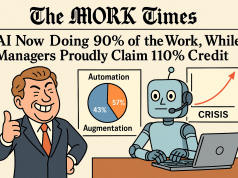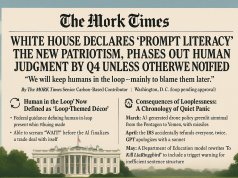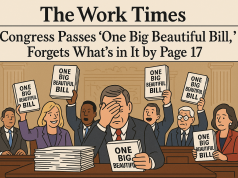In the ever-evolving landscape of the modern workspace, the classic resume—a steadfast cornerstone of job applications—is witnessing a significant transformation. As traditional work environments and norms are disrupted, a new era of professional representation is taking shape. The future of resumes is being redefined by several key factors, changing how job seekers present themselves and how employers evaluate potential candidates.
The first driver of change is the rise of personal branding. No longer is a resume just a list of past jobs and education; it’s becoming a narrative of one’s professional identity. Individuals are crafting unique stories, showcasing not just their skills and experiences, but their values, passions, and the distinctive attributes that set them apart in a crowded marketplace. This shift toward storytelling in resumes is a reflection of the broader trend of authenticity and personalization in the professional world.
Next, the digital footprint of a candidate has become almost as important as the resume itself. Online presence, through professional sites like LinkedIn or personal blogs and portfolios, provides a multidimensional view of a candidate’s abilities and achievements. Employers are often Googling candidates before the interview, making a well-maintained digital persona a crucial component of the modern job seeker’s arsenal.
Unconventional experience, too, is gaining ground. Employers are increasingly valuing diverse life experiences that contribute to a candidate’s perspective and skill set. This means that gap years, volunteer work, side hustles, and even hobbies are making their way onto resumes as legitimate indicators of a candidate’s potential and adaptability.
Diversity and inclusion initiatives are also influencing what is considered an impressive resume. There’s a growing recognition of the need to move beyond the cookie-cutter profiles that have dominated the workforce and to appreciate the strength that diverse backgrounds bring to a team. Consequently, employers are looking for cultural fit and potential for contribution to a diverse team, which has implications for how candidates frame their experiences and backgrounds.
The rise of the gig economy and remote work trends is reshaping our idea of a ‘professional’ resume. Non-linear career paths with a mix of freelance projects, part-time work, and even remote positions are becoming more accepted. This shift presents an opportunity for job seekers to highlight their versatility, tech-savvy, and self-motivation—qualities especially prized in the modern, flexible workforce.
Employers and recruiters are responding to these changes in varying ways. While some remain wedded to traditional formats, others are embracing the new, holistic view of candidates. This is not to say that core elements like clarity, conciseness, and relevance have taken a back seat; rather, they are being complemented by the new, diversified components of a candidate’s professional presentation.
So what can job seekers do to stand out in this new environment? The key is to balance tradition with innovation—maintaining the clarity and professionalism expected from a resume, while also infusing it with personality, uniqueness, and a sense of narrative. Candidates should leverage technology to create dynamic, digital resumes and ensure their online presence is robust and consistent with their personal brand.
Looking ahead to the next decade, we can expect technology to further revolutionize the resume. With advancements like AI, augmented reality, and video resumes, the future could hold more interactive and immersive ways for candidates to convey their stories. Moreover, as workplace values continue to shift towards greater flexibility, inclusivity, and emphasis on soft skills, these elements will increasingly be reflected in the resumes of the future.
In conclusion, the modern resume is much more than a static document—it is a living, evolving representation of a job seeker’s professional journey. As we continue to redefine professionalism, embracing these changes will not only benefit job seekers looking to make their mark but also employers seeking the most dynamic and adaptable talent.

























